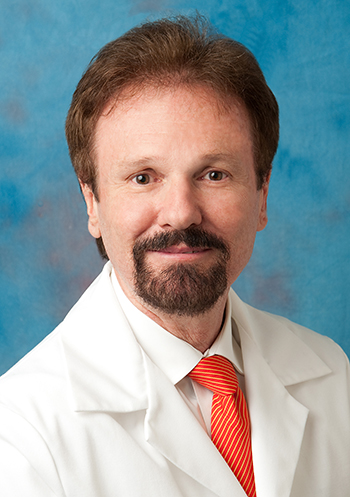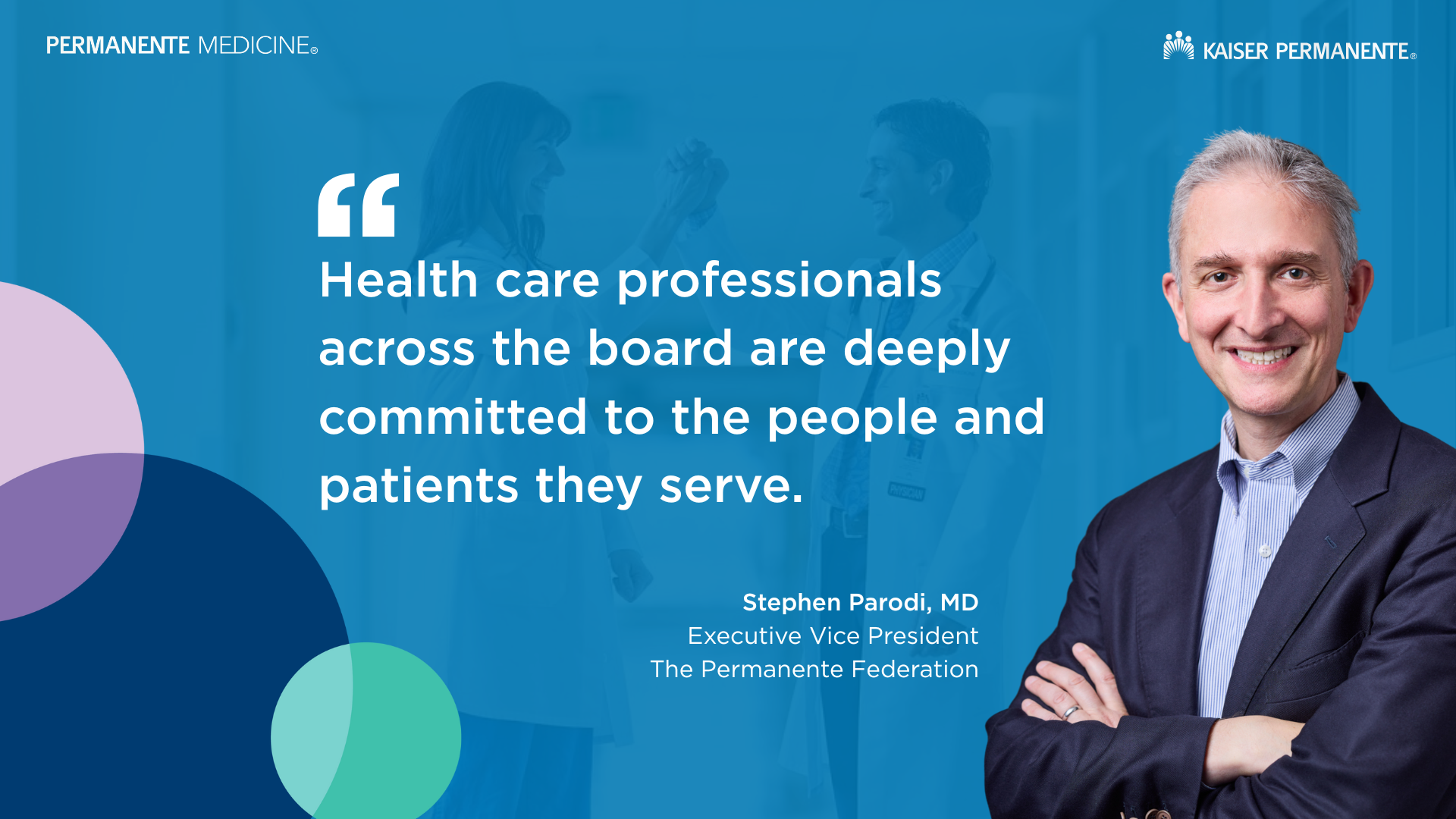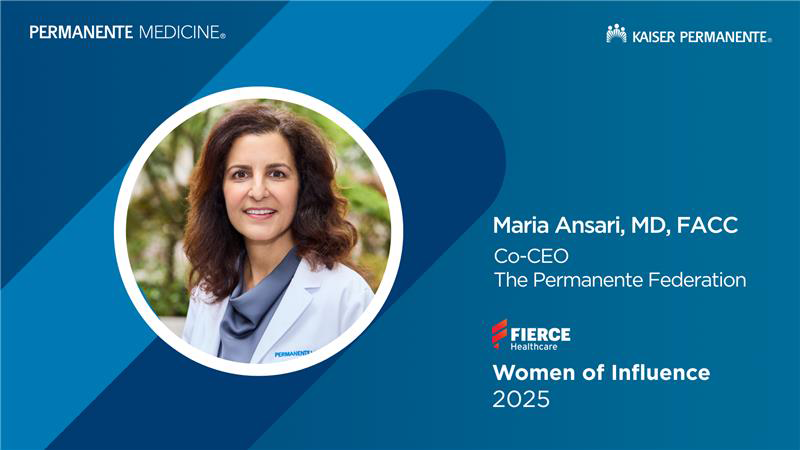Explore valuable lessons learned from Permanente physicians in 2025's rapidly changing health care landscape.
Narrative medicine: Letting our patients tell their story
Ability to listen helps doctors connect with patients and themselves

Many years ago, my medical school roommate invited me to dinner at the home of his mother and father, both of whom survived the horrors of Auschwitz. After a delicious meal, they began sharing stories about life in “the camp.”
I asked them later why they had opened up to me. Their response was that I was one of the few people they thought could bear to hear what had happened. I recognized their trust as a gift to be treasured. As a young medical student, it taught me that histories must be received, not taken.
The ability to listen, to empathize, to build trust – this is the basis of narrative medicine. Developed by Rita Charon, MD, a professor at Columbia University College of Physicians and Surgeons, narrative medicine is a model of enhancing the patient-physician relationships through empathy, reflection, and enhancing trust. It uses the skills of recognizing, absorbing, interpreting, and being moved by the stories of illness.
Research reveals that most clinicians interrupt a patient within 18 seconds after the interview begins. Dr. Charon suggests we begin with “Tell me what you think I should know about your situation.”
Ability to absorb
After that simple question, Dr. Charon does her best “not to say a word, not to write, but to absorb all that he emits about himself – about his health concerns, his family, his work, his fears, and his hopes. I listen not only for the content of his narrative but also for its form, its temporal course, its images, its associated subplots, its silences, how he chooses to begin telling about himself.”
Dr. Charon describes the effect this has on patients. “After a few moments, the patient stops talking and begins to weep. I ask him why he cries, and he says, ‘No one ever let me do this before.’”
If our patients do not feel like we heard them, we may not gain acceptance of the care plan we offer.
Our society is losing this ability to listen, to stay focused on one person or topic for extended periods of time. Communication has been reduced to short bursts of text, social media posts, and emojis. As clinicians, we listen just long enough to figure out what test to order and type it into our EMR. We must – the next patient is already waiting, with dozens more before the day ends. Before long, we find ourselves in a field where burnout and a loss of spirit, joy, wonder, and meaning are commonplace.
Altering our clinical approach can fundamentally change our patient care routine and offer a more healing approach. If our patients do not feel like we heard them, we may not gain acceptance of the care plan we offer. Dr. Charon states “…for the body will not bend to ministrations from someone who cannot recognize the self within it … the self, exposed to the new light of day by virtue of ruptures in its surface of health.”
“What expert listeners [clinicians] do is open the door to hearing stories that they feel others might not be willing to hear,” says Mary Marshall Clark, co-founder and director of the Columbia Center for Oral History Research at Columbia University. “We think of stories as gifts. We are the receptacles and containers that hold the person’s narrative.”
Applicable to all specialties
The approach works in every specialty, in practices of all sizes. My own medical group, The Southeast Permanente Medical Group, is beginning to offer Narrative Medicine Rounds, where we share our “parallel chart” – written stories and reflections on patient encounters. Our goal is to help clinicians reconnect with their own healing spirits through fellowship with other healers. A similar process could be used in department meetings, staff huddles, or even one-on-one.
The process of learning to genuinely listen may take some time. In one of my favorite stories, Margery Williams’ The Velveteen Rabbit, the Skin Horse describes how becoming “real” takes time … and can be painful.
“It’s a thing that happens to you. When a child really loves you for a long, long time, not just to play with, but REALLY loves you, then you become Real. …Generally, by the time you are Real, most of your hair has been loved off, and your eyes drop out and you get loose in the joints and very shabby. But these things don’t matter at all, because once you are Real you can’t be ugly, except to people who don’t understand.”
Yes, the health care field needs significant and meaningful systemic and operational changes. We can do our part by giving patients more hope and healing by adopting a narrative medicine approach to care. Doing so can enhance our “realness” and help us reconnect with our inner healing selves.
Bob Climko, MD, MBA, is physician program director for Professional Development, The Southeast Permanente Medical Group. He’s also an addiction medicine specialist with Kaiser Permanente’s Behavioral Health Department. Connect with him on Twitter @BobClimko.
This column originally appeared on MDatl.com.


